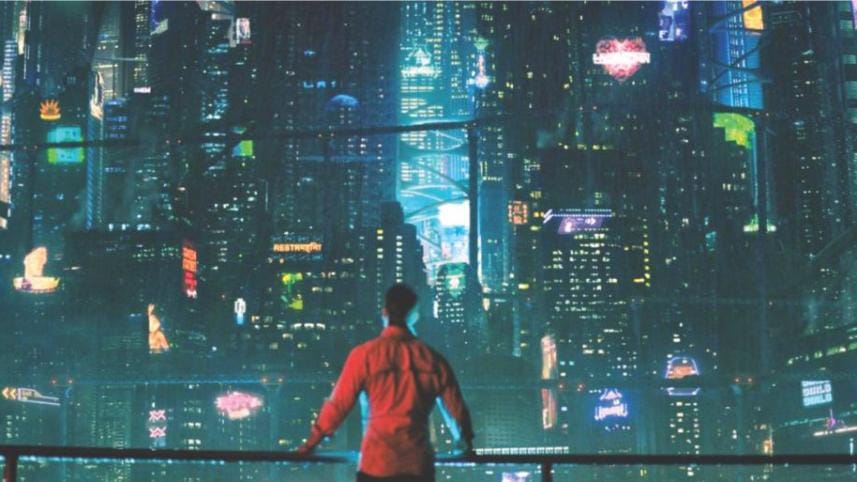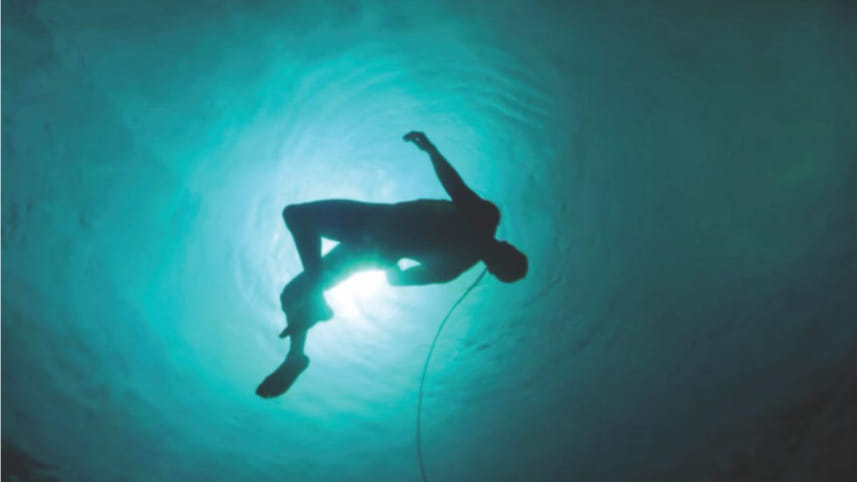ALTERED CARBON

Although it's been out for over two months, the visually-thrilling, ultra-pulp tech-noir Altered Carbon has enjoyed relatively little fanfare.
Created by Shutter Island screenwriter Laeta Kalogridis, Altered Carbon is set in a depraved new world 400 years in the future. Human consciousness now exists on “stacks”, and if you're rich enough, it can be downloaded and transported via the cloud. If you die, your identity can be simply booted up in a new “sleeve”, and if you can afford it, in your very own bio-enhanced clone. This means immortality, body-switching, planet-hopping and perfected virtual reality are the MO of the new world order.
Rebel-turned-super-sleuth, tough-guyprotag Takeshi Kovacs has spent the last 250 years with his consciousness “turned off”. He is spun up in a buff new body (owned by recent RoboCop Joel Kinnaman), and tasked with solving the murder of the world's wealthiest and oldest-living human, Laurens Bancroft. Joining Kovacs on his manhuntare AI hotelier Poe, disgruntled ex-Marine Vernon Elliot, and Kristin Ortega, a detective who's got moves as well as an ulterior motive.
Small-screen sci-fi always runs the risk of being financially unsustainable (e.g. Joss Whedon's short-lived Firefly that was originally designed to span seven years) or looking a tad plasticky (think: DC's Legends of Tomorrow or The 100). But looks is one department where the series definitely prevails. With a budget described as being bigger “than the first three seasons of Game of Thrones”, Altered Carbon is a punchy, high-grade cyberpunk fix.

Rather it is the casting which misses the mark with some characters. Amateurish theatrics by Dichen Lachman and one of the Pussycats from Riverdale, are disappointing, even for an action-heavy, gratuitous space-thriller dripping with bright neon lights.
One of the criticisms making the rounds is the show's stylistic emulation of Ridley Scott's deathless classic, Blade Runner. One might ask why 36 years later, Hollywood is still producing television set in exotic, ghetto flesh-pots, but there simply isn't enough skin-job pastiche going around to fault Altered Carbon or be exasperated by it. So for those who wish the electric dream never ended, it promises to not disappoint.
To a lesser degree, the series echoes other genre-defining film. For example, stacks and how they work resemble the SQUID disks from Strange Days, and there is a generous helping of Matrix-like reality-hopping—no doubt exciting for the futurist freak in you.

Whether it is the Sade-esque sexual debauchery or the outlandish socioeconomic strata propagated by mankind's newfound immortality, true to the dystopian genre, Altered Carbon is as hyper realist as fantastical.
If all goes well, the Netflix series will run for a total of five seasons, but the show has already got people wondering if its so-farniche following will support such an extravagant endeavour.
However, genre appeal certainly does not define the artistic and intellectual merit or even entertainment value of a production, and Altered Carbon's multi-planetary human civilisations and marvellously gritty splendour entertain to say the least. Kalogridis' dark, sensual meditation on disconnecting mind from body is a work of ambitiously ultraviolent science fiction that will go down as a cult classic, even if it does not break out beyond its hard-core genre enthusiasts.




Comments